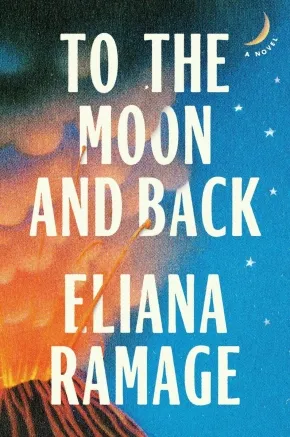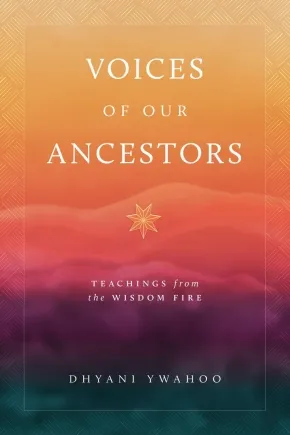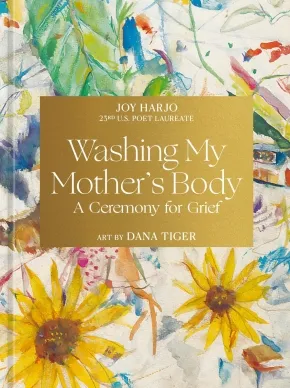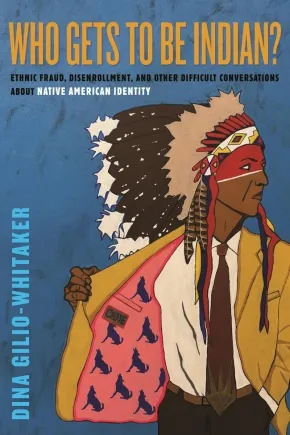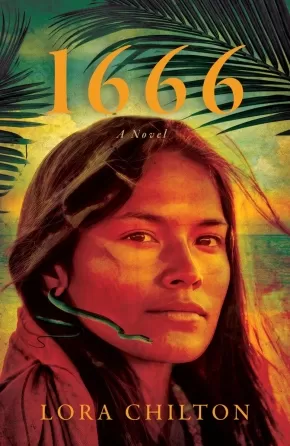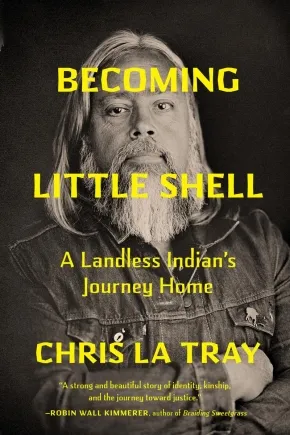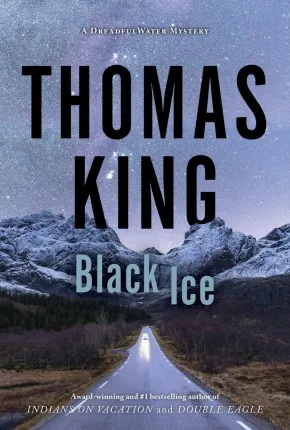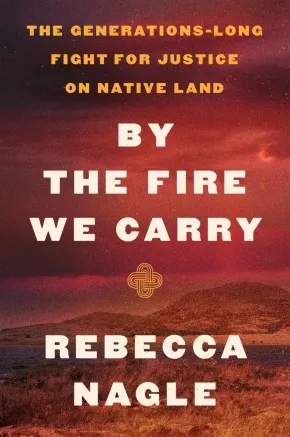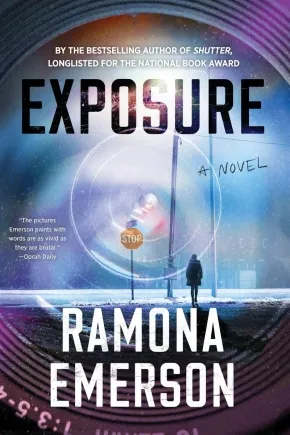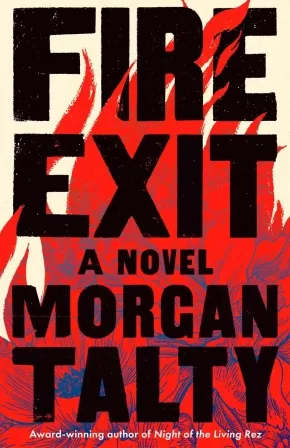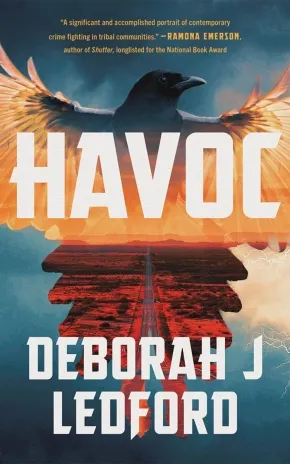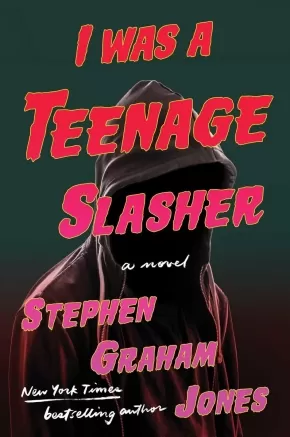
Indigenous Peoples in the United States
46
-
60
of
299 Results;
Sort By
Go To
of 20
To the Moon and Back: A Novel
$26.99
Format:
Paperback
Text Content Territories:
Indigenous American; Native American; Cherokee;
Reading Level: N/A
ISBN / Barcode: 9781668213131
Synopsis:
Synopsis:
One young woman’s relentless quest to become the first Cherokee astronaut will irrevocably alter the fates of the people she loves most in this tour de force of a debut about ambition, belonging, and family.
My mother took my sister and me, and she drove through the night to a place she felt a claim to, a place on earth she thought we might be safe. I stopped asking questions. I picked little glass pieces from my sister’s hair. I watched the moon.
Steph Harper is on the run. When she was five, her mother fled an abusive husband—with Steph and her younger sister in tow—to Cherokee Nation, where she hoped they might finally belong. In response, Steph sets her sights as far away from Oklahoma as she can get, vowing that she will let nothing get in the way of pursuing the rigorous physical and academic training she knows she will need to be accepted by NASA, and ultimately, to go to the moon.
Spanning three decades and several continents, To the Moon and Back encompasses Steph’s turbulent journey, along with the multifaceted and intertwined lives of the three women closest to her: her sister Kayla, an artist who goes on to become an Indigenous social media influencer, and whose determination to appear good takes her life to unexpected places; Steph’s college girlfriend Della Owens, who strives to reclaim her identity as an adult after being removed from her Cherokee family through a challenge to the Indian Child Welfare Act; and Hannah, Steph and Kayla’s mother, who has held up her family’s tribal history as a beacon of inspiration to her children, all the while keeping her own past a secret.
In Steph’s certainty that only her ambition can save her, she will stretch her bonds with each of these women to the point of breaking, at once betraying their love and generosity, and forcing them to reconsider their own deepest desires in her shadow. Told through an intricately woven tapestry of narrative, To the Moon and Back is an astounding and expansive novel of mothers and daughters, love and sacrifice, alienation and heartbreak, terror and wonder. At its core, it is the story of the extraordinary lengths to which one woman will go to find space for herself.
Reviews
“A story of decisions; right, wrong and everything in between, To the Moon and Back explores love and ambition and all its complicated messiness. With characters so perfectly rendered that you’ll want to hug them or give them a shake, Eliana Rampage explores what it means to belong in this immersive and exciting debut.” — Amanda Peters, author of The Berry Pickers (winner of the Carnegie Medal for Excellence)
“A soaring masterpiece that mixes the terror, care, betrayal, and death-defying love of family with deliciously abject lesbian drama and the beautifully self-destructive doggedness of possessing a singular dream. Every character in this novel will stay with you forever. I love this book.” —Casey Plett, award-winning author of A Dream of a Woma—
“A John Irving-esque tragicomic saga… This author is as ambitious as her protagonist: There are three novels worth of material here, all good. The moon or bust!” —Kirkus Review (starred review)
Additional Information
448 pages | 6.00" x 9.00" | Paperback
Voices of Our Ancestors: Teachings from the Wisdom Fire
$33.95
Format:
Paperback
Text Content Territories:
Indigenous American; Native American; Cherokee; Eastern Band of Cherokee;
Reading Level: N/A
ISBN / Barcode: 9781645473046
Synopsis:
Synopsis:
Follow the beauty way to generate happiness and good relationships, fulfill your life purpose, manifest peace and abundance, and renew the planet.
Dhyani Ywahoo’s powerful, prophetic, and compassionate voice returns in this new expanded edition of the book that’s sold over 90K copies.
This beloved book has resonated with thousands of spiritual explorers and other readers wishing to ground their activities in harmony and well-being. In this expanded edition, Dhyani Ywahoo continues to be a guiding source of wisdom for all who walk the Beauty Way. As the twenty-seventh generation to carry the Ywahoo lineage of the Eastern Tsalagi/Cherokee Nation, she shares the precious oral teachings of her people that remain timely, powerful, and accessible.
Weaving together Buddhist and Native American traditions, Voices of Our Ancestors offers practical ways of transforming obstacles into happiness and good relationships, fulfilling our life purpose, manifesting peace and abundance, and renewing the planet. The Tsalagi worldview teaches us to infuse each moment with the three fundamental principles of intention, compassion, and doing good. We have the opportunity to let go of fear and aggression and begin to live a life of enlightened consciousness, with tools like:
- Meditations;
- Healing rituals;
- Instructions for working with crystals; and
- Teachings on how to practice generosity and harmony.
Our journey is enriched by Dhyani Ywahoo’s new reflections on the expansion of Native American communities in the United States and how they have cooperated to bring Indigenous voices into larger conversations about conflict resolution, the climate crisis, and the need for inclusion of underrepresented groups and individuals. With a voice that is powerful, prophetic, and compassionate, Dhyani Ywahoo calls on us to become peacekeepers in our hearts and in the world.
Reviews
“Venerable Dhyani Ywahoo embodies wisdom of the Native and Tibetan traditions. Hers is a lifetime spent generously sharing these sacred teachings with students all over the world. I celebrate this new edition of her book, which will hold these precious methods to walk in this world with wisdom and compassion now and for future generations.”—Lama Konchok Sonam, spiritual director of Drikung Meditation Center
“These wisdom teachings are profoundly life-changing for spiritual growth no matter your tradition. Venerable Dhyani Ywahoo is an exceptional spiritual leader and teacher, having forged her own way through traditional Cherokee and Vajrayana teachings. She compassionately embraces her students with her wisdom, offering unique and significant insights. Voices of Our Ancestors is a timeless work and as such it lends support and inspiration continually.”—Shan Watters, artist and author of Mothering the Divine
Additional Information
352 pages | 6.00" x 8.99" | Paperback
Washing My Mother's Body: A Ceremony for Grief
$24.95
Artists:
Format:
Hardcover
Text Content Territories:
Indigenous American; Native American; Muscogee (Creek);
Reading Level: N/A
ISBN / Barcode: 9781984861368
Synopsis:
Synopsis:
A beautifully illustrated edition of Poet Laureate Joy Harjo’s poem “Washing My Mother’s Body,” which offers a way through grief when the loss appears unbearable.
As I wash my mother’s face, I tell her
how beautiful she is, how brave, how her beauty and bravery
live on in her grandchildren. Her face is relaxed, peaceful.
Her earth memory body has not left yet,
but when I see her the next day, embalmed and in the casket
in the funeral home, it will be gone.
Where does it go?
Through lyrical prose and evocative watercolor illustrations by award-winning Muscogee artist Dana Tiger, Washing My Mother’s Body explores the complexity of a daughter’s grief as she reflects on the joys and sorrows of her mother’s life. She lays her mother to rest in the landscape of her memory, honoring the hands that raised her, the body that protected her, and the legs that carried her mother through adversity.
Moving, comforting, and deeply emotional, Washing My Mother’s Body is a tender look at mother-daughter relationships, the complexity of grieving the loss of a parent, and the enduring love of those left behind.
Additional Information
80 pages | 5.79" x 7.81" | Hardcover
Who Gets to Be Indian?: Ethnic Fraud, Disenrollment, and Other Difficult Conversations About Native American Identity
$39.95
Format:
Hardcover
Text Content Territories:
Indigenous American; Native American;
Reading Level: N/A
ISBN / Barcode: 9780807044964
Synopsis:
Synopsis:
An investigation into how Native American identity became a commodity, from cultural appropriation to ethnic fraud to disenrollment
Settler capitalism has been so effective that the very identities of Indigenous people have been usurped, misconstrued, and weaponized. In Who Gets to Be Indian?, scholar and writer Dina Gilio-Whitaker (Colville Confederated Tribes) explores how ethnic fraud and the commodification of Indianness has resulted in mass confusion about what it means to be Indigenous in the United States.
As an entry point to the seemingly intractable problem of ethnic fraud, Gilio-Whitaker critically looks to the film industry, including a case study of Sacheen Littlefeather, who is most known as the Native American woman that rejected an Oscar on behalf of Marlon Brando in 1973—though later revealed, she was not who she said she was. Gilio-Whitaker argues that this pretendian phenomenon originated in Southern California when the United States was forcing assimilation of Indians into white America culturally, but also into its capitalist economic system. With Indianness becoming a marketized commodity in the Hollywood film business, the field became open to anyone who could convincingly adopt an Indian persona.
Deeply researched using socio-historical analysis, Gilio-Whitaker offers insights from her own experiences grappling with identity to provide clarity and help readers understand how the commodification of Indianness have ultimately left many people of legitimate American Indian heritage to be disconnected from their tribes. Personal and compelling, Gilio-Whitaker takes settler capitalism to task and helps us better understand how we got here in order to counteract the abuses of pretendianism and disenrollment.
Reviews
“This incendiary j’accuse isn’t afraid to name names.”—Publishers Weekly, Starred Review
“With clarity and conviction, Dina Gilio-Whitaker exposes what’s at stake for Native people when Indianness becomes a commodity. A sharp, personal, and urgent look at the high cost for actual Native people in a system built to exploit them at every turn.”—Kim TallBear, author of Native American DNA: Tribal Belonging and the False Promise of Genetic Science
“Indigeneity is caught between truth tellers and tricksters. With abiding concern for tribal nationhood, Dina Gilio-Whitaker boldly espouses our truths while confronting the tricksters among us. Indigenous America needs more truth tellers like her and books like this.”—Gabe Galanda, Indigenous rights attorney
“Dina Gilio-Whitaker’s Who Gets to Be Indian? tackles the problem of the commodification of Native identity at a crucial moment in American history. With incisive analysis, Gilio-Whitaker reveals how settler capitalism has distorted and exploited Indigenous identities and exposes the roots of folks pretending to be Native and its harms to Native communities. This book is a call to action and a vital tool for understanding how we can protect Indigenous people. A must-read for anyone seeking to confront the complexities of Native identity, sovereignty, and power in America.”—Liza Black, author of Picturing Indians: Native Americans in Film, 1941–1960
“A fresh and unflinching look into the rise of pretendianism—when it became normalized for Hollywood to grant Native American identities to various grifters. Dina Gilio-Whitaker’s courageous and original analysis will challenge readers, Indigenous or not, to think deeply about the nature of settler colonialism today.”—Darryl Leroux, author of Distorted Descent: White Claims to Indigenous Identity
Additional Information
280 pages | 6.22" x 9.30" | Hardcover
1666: A Novel
$25.95
Format:
Paperback
Text Content Territories:
Indigenous American; Native American; Patawomeck Indian Tribe of Virginia (Potomac People);
Reading Level: N/A
ISBN / Barcode: 9781960573957
Synopsis:
Synopsis:
A Fictional Recounting of the Survival Story of Patawomeck Tribe of Virginia
The story has been remembered within the Patawomeck tribe for generations, but is largely unknown outside of the tribe until now. Author Lora Chilton, a tribal member through the lineage of her father, has created this powerful fictional retelling.
The story follows three Indigenous Patawomeck women who lived through the decimation of their tribe by land hungry colonists in the summer of 1666, the massacre of their men, the harrowing march south where they and their children were sold and transported to Barbados via slave ship, and, eventually, their brave escape back to Virginia. It is because of these women that the tribe is in existence to this day.
This work of historical fiction is based on oral tradition, interviews with tribal elders, written colonial records and extensive research by the author, including study of the language. The book uses Indigenous names for the characters and some Patawomeck words to honor the culture and heritage that was erased when European colonization of the Americans began in the 16th century.
Reviews
"Packed with Indigenous culture and customs and sprinkled with tribal terminology, the narrative is vivid, magnetic, and chilling. The author is herself a Patawomeck descendant, and she’s combined scant available written records with tribal oral history to inform her creation of two emotionally powerful, vibrant female protagonists….plenty of action, tears, cheers, and historical detail work to keep the pages turning. A disturbing, absorbing, and valuable addition to the literature of cruelty inflicted upon Indigenous peoples."—Kirkus Reviews
“Focusing on the experiences of three Patawomeck women in the latter half of the seventeenth century, Chilton, in 1666 : A Novel, draws on contemporary scholarship regarding Patawomeck and Virginia Algonquian history, culture, and language to develop her characters and add depth to their stories. It is refreshing to read a story about Virginia Indian women in the seventeenth century that avoids the glamorized, sexualized, and racialized Pocahontas mythology and instead centers on the experiences of those everyday people who may not have been so well-known to colonizers but are the true ancestors of most Virginia Indians…. A fast-paced novel that takes the reader through numerous Atlantic landscapes from the traditional Patawomeck homelands along Potomac Creek, to Barbados, to New York, 1666 illustrates the interconnectedness of the early Modern world and its people." —Dr. Brad Hatch, Patawomeck Tribal Historian and Tribal Council Member
"In this debut novel by Lora Chilton, 1666: A Novel, we are introduced to a history based account of two brave Indigenous women of the Patawomeck tribe, who are abducted from their native Virginia home in 1666 and enslaved under the brutal 'Master' and 'Mistress' of the plantations in Barbados. A page-turning marvel of a historical novel! Otherwise, the shameful erasure of the Patawomeck would have been maintained." —Diana Y. Paul, author of Things Unsaid
Additional Information
224 pages | 5.32" x 8.46" | Paperback
Becoming Little Shell: A Landless Indian's Journey Home
$42.95
Format:
Hardcover
Text Content Territories:
Indigenous American; Native American; Anishinaabeg; Ojibwe (Chippewa); Little Shell Tribe of Chippewa Indians ;
Reading Level: N/A
ISBN / Barcode: 9781571313980
Synopsis:
Synopsis:
Growing up in Montana, Chris La Tray always identified as Indian. Despite the fact that his father fiercely denied any connection, he found Indigenous people alluring, often recalling his grandmother’s consistent mention of their Chippewa heritage.
When La Tray attended his grandfather’s funeral as a young man, he finally found himself surrounded by relatives who obviously were Indigenous. “Who were they?” he wondered, and “Why was I never allowed to know them?” Combining diligent research and compelling conversations with authors, activists, elders, and historians, La Tray embarks on a journey into his family’s past, discovering along the way a larger story of the complicated history of Indigenous communities—as well as the devastating effects of colonialism that continue to ripple through surviving generations. And as he comes to embrace his full identity, he eventually seeks enrollment with the Little Shell Tribe of Chippewa Indians, joining their 158-year-long struggle for federal recognition.
Both personal and historical, Becoming Little Shell is a testament to the power of storytelling, to family and legacy, and to finding home. Infused with candor, heart, wisdom, and an abiding love for a place and a people, Chris La Tray’s remarkable journey is both revelatory and redemptive.
Reviews
“La Tray’s pride and conviction will have readers eager not only to learn more, but to take action. A brilliant contribution to the canon of Native American literature.”—Kirkus Reviews, starred review
“[A] gripping debut memoir. [. . .] La Tray’s crystalline prose and palpable passion for spreading Indigenous history bolster his account. Readers will be fascinated.”—Publishers Weekly
"Heartbreaking, infuriating, and remarkable, Becoming Little Shell is a memoir that’s packed with historical details,transcending and amplifying a personal quest to understand a family’s past."—Foreword Reviews, starred review
“Smart, emotional, and bracingly honest, La Tray is a powerful storyteller who should have significant appeal.”—Booklist
“I’m in awe of Chris La Tray’s storytelling. Becoming Little Shell creates a multilayered narrative from threads of personal, family, community, tribal, and national histories. Together they make a story as strong and beautiful as a Metis sash—a story of identity, kinship, and the journey toward justice.”—Robin Wall Kimmerer, author of Braiding Sweetgrass
“Chris La Tray is a powerful voice—a force of nature, really—to guide us through the swirling confluence of Native and white worlds, both past and present. Becoming Little Shell is the American story of our era—tracing the arc of its author brought up in the white world before discovering his roots as an original inhabitant of this continent.”—Peter Stark, author of Gallop Toward the Sun
“Indigenous identity can be complicated, and Becoming Little Shell compels us into the thick of it—Native people dispossessed of not just land but recognition; blood quantum laws originally crafted to complete a genocide and still wreaking havoc in identity debates today; racism that drove many Native people to disassociate from their families; and descendants, like La Tray, who have found their way back, fighting for the reconnection of their communities and for the observance of their very existence. La Tray is a loving, discerning, curious, funny, and generous guide. This is a beautiful, big-hearted book.”—Sierra Crane Murdoch, author of Yellow Bird
“Becoming Little Shell is a moving, deeply felt, and incredibly detailed account of Chris La Tray’s search for his origins among the Métis, Pembina, and Little Shell Tribe of Chippewa Indians. Combining memoir, history, interviews, and travel, La Tray gives us nothing less than the history of a people in the form of an absorbing and emotionally searing memoir. This book will, without a doubt, become a classic in Native American literature. Must read.”—David Treuer, author of The Heartbeat of Wounded Knee
“What I appreciate so much about Chris La Tray’s writing on Indigenous identity and history is the wit, clarity, and integrity embodied in every word. Becoming Little Shell beautifully encompasses a journey that we can all learn from, a journey toward asking better questions about land, belonging, and connection, and through this book La Tray epitomizes historian, poet, and teacher. Full of Indigenous history, personal stories, and the complex dance between the two, La Tray reminds us that the journey of finding ourselves and making sense of the way colonialism plays out around us is an essential part of being human. Please read this book. You’ll be so glad you did.”—Kaitlin B. Curtice, author of Living Resistance
Additional Information
320 pages | 6.00" x 9.00" | Hardcover
Black Ice
$25.99
Format:
Paperback
Text Content Territories:
Indigenous American; Native American; Cherokee;
Grade Levels: 12; University/College;
ISBN / Barcode: 9781443474078
Synopsis:
Synopsis:
Thumps DreadfulWater has a lot on his plate. With Duke out of commission following his wife’s tragic death, Thumps is appointed temporary deputy sheriff, a role that makes him doubly eager for Duke’s swift recovery.
First, a myopic private investigator dies while in custody. The autopsy concludes that he died of natural causes; then an assault rifle is found in the trunk of the dead man’s rental car, and the mystery woman he was investigating disappears. Meanwhile, Thumps contends with a couple of horse-thieving octogenarians and a large, slobbery dog acquired in the line of duty.
As the rest of Chinook comes together to cheer on golf novice Wutty Youngbeaver, who is competing in the US Open qualifying tournament up at Shadow Ranch, Claire and Ivory decamp to Alberta, leaving Thumps to contemplate the simplicity of a life lived alone. If he can’t manage something as simple as a dog or a couple of cats, how can he be responsible for another human being? Two human beings?
The plot thickens when ninja assassin Cisco Cruz returns to Chinook, and Thumps finds himself knee-deep in a complicated web of deceit spun by a nefarious collective known as Black Ice. His job? To sort through the lies. It’s like a game of Jenga, where the blocks need to be removed carefully, one by one, or the whole structure will topple.
Series Information
This book is from the DreadfulWater Mystery series, a mystery/detective series from Thomas King.
Books in this series include:
- Dreadful Water
- The Red Power Murders
- Cold Skies
- A Matter of Malice
- The Obsidian Murders
- Deep House
- Double Eagle
- Black Ice
Additional Information
384 pages | 6.00" x 9.00" | Paperback
By the Fire We Carry: The Generations-Long Fight for Justice on Native Land
$39.50
Format:
Hardcover
Text Content Territories:
Indigenous American; Native American; Muscogee (Creek); Cherokee; Cherokee Nation (Cherokee Nation of Oklahoma);
Reading Level: N/A
ISBN / Barcode: 9780063112049
Synopsis:
Synopsis:
A powerful work of reportage and American history that braids the story of the forced removal of Native Americans onto treaty lands in the nation’s earliest days, and a small-town murder in the ‘90s that led to a Supreme Court ruling reaffirming Native rights to that land over a century later.
Before 2020, American Indian reservations made up roughly 55 million acres of land in the United States. Nearly 200 million acres are reserved for National Forests—in the emergence of this great nation, our government set aside more land for trees than for Indigenous peoples. That changed on July 9, 2020, when a high-profile Supreme Court case—which originated with a small-town murder two decades earlier—affirmed the reservation of Muscogee Nation. The ruling resulted in the largest restoration of tribal land in U.S. history, merely because the Court chose to follow the law.
In the 1830s Muscogee people were rounded by the US military at gunpoint and forced into exile halfway across the continent. At the time, they were promised this new land would be theirs for as long as the grass grew and the waters ran. But that promise was not kept. When Oklahoma was create on top of their land, the new state claimed their reservation no longer existed. Over a century later, when a Muscogee citizen was sentenced to death for murdering another Muscogee citizen, his defense attorneys argued the murder occurred on the reservation of his tribe, and therefore Oklahoma didn’t have the jurisdiction to execute him. Oklahoma argued that reservation no longer existed. In the summer of 2020, the Supreme Court said: no more; a ruling that would ultimately underpin multiple reservations covering half the land in Oklahoma, including Nagle’s own Cherokee Nation.
Here Rebecca Nagle tells the story of the generations-long fight for tribal land and sovereignty in Eastern Oklahoma. By chronicling both the contemporary legal battle and historic acts of Indigenous resistance, By the Fire We Carry stands as a landmark work of American history. The story it tells exposes both the wrongs that our nation has committed in its long history of greed, corruption and lawlessness, and the Native battle for the right to be here that has shaped our country.
Educator Information
By the Fire We Carry is hard-hitting American history that expands on the nation's story. It tells of the treatment of Native Americans, their removal and displacement, and the genocide committed against them by the US government from their viewpoint.
Additional Information
352 pages | 6.00" x 9.00" | 23 b/w photographs and maps | Hardcover
Earthdivers, Vol. 2: Ice Age
$21.99
Artists:
Format:
Paperback
Text Content Territories:
Indigenous American; Native American;
Reading Level: N/A
ISBN / Barcode: 9798887240688
Synopsis:
Synopsis:
Guest artists Riccardo Burchielli (DMZ), Patricio Delpeche, and Emily Schnall join Stephen Graham Jones—New York Times best-selling author of The Only Good Indians and My Heart Is a Chainsaw—for a mission to the Ice Age exploring America’s pre-Columbian past!
When Martin and Tawny’s children disappeared, the couple barreled into the desert to track them down at any cost. Instead, they ran afoul of another group of rovers who claimed to be saving the world by traveling through a cave portal to the year 1492 to prevent the creation of America—an idea that defied belief until the grieving parents were lured into the cave and vanished in time and space.
Now alone, Tawny must adapt to the wild marshlands of prehistoric Florida, circa 20,000 BC, and the breathtaking and bloodthirsty megafauna are the least of her problems when she’s caught in a war between a community of native Paleo-Indians and an occupying Solutrean force. Tawny’s odds of survival are in free fall, but she’s a mother on a mission…and she’s holding on to hope that the cave brought her here for a family reunion.
In the tradition of Saga, the next chapter of the critically acclaimed sci-fi epic is here in Earthdivers Vol. 2.
Series Information
This is the second book in the Earthdivers series.
Additional Information
104 pages | 6.62" x 10.18" | Paperback
Earthdivers, Vol. 3: 1776
$28.99
Artists:
Format:
Paperback
Text Content Territories:
Indigenous American; Native American;
Reading Level: N/A
ISBN / Barcode: 9798887241463
Synopsis:
Synopsis:
Join or die! New York Times best-selling author Stephen Graham Jones and artist Davide Gianfelice are back in action for the next chapter of their heart-pounding historical sci-fi slasher Earthdivers!
A team of time-traveling Indigenous survivors had one goal: save the world from an American apocalypse by sending one of their own on a suicide trip to kill Christopher Columbus and course-correct world history.
Mission accomplished? Maybe not. Blood is still soaking into the sands of San Salvador as Tad’s friends suffer the consequences of his actions—and their own slippery moral rationalizations—620 years in the future. Faced with a choice to watch the world crumble or double down on their cause, the path is clear for Seminole two-spirit Emily: it's personal now, and there’s no better time and place to take another stab at America than Philadelphia, 1776.
But where violence just failed them, she has a new plan: pass as a man, infiltrate the Founding Fathers, and use only wit and words to carve out a better future in the Declaration of Independence. No need to cut throats this time…right?
The next chapter of the critically acclaimed sci-fi epic is here in Earthdivers Vol. 3.
Series Information
This is the third book in the Earthdivers series, preceded by Earthdivers, Vol. 1: Kill Columbus and Earthdivers, Vol. 2: Ice Age.
Additional Information
208 pages | 6.69" x 10.25" | Paperback
Exposure
$39.95
Format:
Hardcover
Text Content Territories:
Indigenous American; Native American; Navajo (Diné);
Reading Level: N/A
ISBN / Barcode: 9781641294768
Synopsis:
Synopsis:
In the follow-up to the National Book Award–longlisted Shutter, Navajo forensic photographer Rita Todacheene grapples with a fanatical serial killer—and the ghosts he leaves behind.
A dual-voice cat-and-mouse thriller, told from the points of view of a killer who has created his own deadly religion and the only person who can stop him, an embattled young detective who sees the ghosts of his Native victims.
In Gallup, New Mexico, where violent crime is five times the national average, a serial killer is operating unchecked, his targets indigent Native people whose murders are easily disguised as death by exposure on the frigid winter streets. He slips unnoticed through town, hidden in plain sight by his unassuming nature, while the voices in his head guide him toward a terrifying vision of glory. As the Gallup detectives struggle to put the pieces together, they consider calling in a controversial specialist to help.
Rita Todacheene, Albuquerque PD forensic photographer, is at a crisis point in her career. Her colleagues are watching her with suspicion after the recent revelation that she can see the ghosts of murder victims. Her unmanageable caseload is further complicated by the fact that half the department has blacklisted her for ratting out a corrupt fellow cop. And back home in Tohatchi on the Navajo reservation, Rita’s grandma is getting older. Maybe it’s time for her to leave policework behind entirely—if only the ghosts will let her . . .
Reviews
“Exposure is intense, gripping, moving, and so gorgeously written. I often stopped to reread certain passages purely for the elegance of her language, descriptions of scalded beauty. A stunner!”—Mona Susan Power, author of A Council of Dolls
“From the very first page, Exposure is equally—if not more—electrifying than the first, allowing both fans and newcomers to jump right in . . . Emerson, a Diné writer and filmmaker who hails from Rita’s own hometown of Tohatchi in the Navajo Nation, masterfully commands these tightly wound plot strands, varying the tension and pacing with comforting moments with Rita’s beloved elderly neighbor, Mrs. Santillanes . . . Rita Todacheene is a gritty, believable character with a heart that is equal parts steel and soul. Readers will immediately be clamoring for more.”—BookPage, Starred Review
Educator & Series Information
This is the second book in the A Rita Todacheene Novel series, following Shutter.
Additional Information
288 pages | 6.26" x 9.32" | Hardcover
Fire Exit: A Novel
$34.00
Format:
Hardcover
Text Content Territories:
Indigenous American; Native American; Penobscot;
Reading Level: N/A
ISBN / Barcode: 9781039056428
Synopsis:
Synopsis:
Does she remember this day? Does she remember it at all? Does she know this history—this story—her body holds secret from her?
From the porch of his home, Charles Lamosway has watched the life he might have had unfold across the river on Maine’s Penobscot Reservation. On the far bank, he caught brief moments of Roger and Mary raising their only child, Elizabeth—from the day she came home from the hospital to her early twenties. But there’s always been something deeper and more dangerous than the river that divides him from this family and the rest of the tribal community. It’s the secret that Elizabeth is his daughter, a secret Charles is no longer willing to keep.
Now it’s been weeks since he’s seen Elizabeth and Charles is worried. As he attempts to hold on and care for what he can: his home and property, his alcoholic, quick-tempered and big-hearted friend Bobby, and his mother, Louise, who is slipping ever-deeper into dementia—he becomes increasingly haunted by his past. Forced to confront a lost childhood on the reservation, a love affair cut short, and the death of his beloved stepfather, Fredrick, in a hunting accident—a death that he and Louise cannot agree where to lay the blame—Charles contends with questions he’s long been afraid to ask. Is it his secret to share? And would his daughter want to know the truth?
From award-winning author of Night of the Living Rez, Morgan Talty’s debut novel, Fire Exit, is a masterful and unforgettable story of family, legacy, bloodlines, culture and inheritance, and what, if anything, we owe one another.
Reviews
“Fire Exit, Morgan Talty’s debut novel, is utterly consuming. With this book, Talty more than fulfills the promise of his glorious short story collection, Night of the Living Rez. The storytelling is both spellbinding and quietly devastating. The novel is ultimately about family and belonging, about the stories we need to know even when they threaten to burn our lives down. A father desperately wants to let his daughter know about her body’s secret history, even while his mother forgets her son altogether. This book is filled with humor, and humanity’s strange wonder at its own desperation and depravity, as only Talty can do, with his subtle charm and crystalline prose, his sober reckoning with what love can and cannot do, what healing is and is not possible in our families. The novel absolutely smolders.” —Tommy Orange
“Fire Exit is gorgeous. A genuinely original examination of the costs we pay to tell ourselves certain stories about who we are and where we come from. Talty is a revelation on matters of the heart, particularly the tenderness and warfare of contemporary manhood. This is that rare thing: a frankly honest novel about hard things written without a trace of bitterness. I loved it.” —Brandon Taylor
“Talty’s writings feels to me like a gift of many lifetimes. Forgiveness, Morgan shows us, is also the work of a lifetime. The people to whom we feel closest can somehow be right beside us in the kitchen and simultaneously on some unreachably distant planet. People rotate away from each other for days or seasons at a time, and it’s miraculous when they return to find each other again, turning towards each other instead of away. It’s a treacherous thing, to love another person in this world that mixes so much beauty with so much sorrow. Thank you for reminding us, Morgan, that it is the necessary thing.” —Karen Russell
Additional Information
256 pages | 5.50" x 8.25" | Hardcover
Fur Trade Nation: An Ojibwe's Graphic History
$42.16
Format:
Hardcover
ISBN / Barcode: 9781962910002
Synopsis:
Synopsis:
We clothed the royals. We fed the worker. We guided the traveler. We abetted the soldier. We are not afraid to love. So begins Carl Gawboy's groundbreaking graphic history of the Fur Trade Era. From 1650 to 1850, the Ojibwe Nation was the epicenter of the first global trading network. Trade goods from Africa, Asia, Europe, and South America flowed into the Great Lakes region, floating along Ojibwe waterways in birchbark canoes paddled by mixed-race Voyageurs. Gawboy offers a fresh perspective on the fur trade era, placing Ojibwe technology, kinship systems, cultural paradigms, and women at the heart of this remarkable era, where they have always belonged.
Additional Information
202 pages | 8.25" x 11.00" | Hardcover
Havoc
$24.99
Format:
Paperback
Text Content Territories:
Indigenous American; Native American; Taos Pueblo;
Reading Level: N/A
ISBN / Barcode: 9781662510458
Synopsis:
Synopsis:
In this tightly paced sequel to Redemption, Eva “Lightning Dance” Duran joins the Taos Pueblo tribal police department to uncover a member of her community’s murder…and the conspiracy behind it.
It’s been over a year since the case that almost broke her, but when Eva “Lightning Dance” Duran is called back to duty, she doesn’t hesitate to answer. A bank robbery has left an officer down and a suspect on the run. Law enforcement is in hot pursuit, and residents are on the lookout—but before anyone can catch the criminal, tragedy strikes.
A member of the Taos Pueblo tribe has been shot and killed. The culprit? An untraceable 3D printed gun. With the support of fellow tribal cops, Eva breaks the news to the victim’s family and swears to find justice.
More violence follows, feeding the rising racial tensions between the Taos Pueblo people and the Hispanic community. New evidence forces Eva to consider the possibility that the bank robbery and 3D guns are related, but until she figures out how, there’s no telling how deep this crime ring goes…or how far its evasive ringleader will go to protect it.
Reviews
“Ledford’s sequel to Redemption excels…For fans of books by both Tony and Anne Hillerman, along with others that embody the spirit and landscape of the Southwest.” —Library Journal
“Atmospheric, poignant, and set in the Taos Pueblo, Ledford’s tribal police officer Eva ‘Lightning Dance’ Duran doesn’t flinch in this dark, twisting tale that’s riveting from the first page. A fantastic second book in this new series from a master of crime fiction.” —Jamie Freveletti, award-winning and internationally bestselling author of the Emma Caldridge series
Series Information
This book is part of the Eva "Lightning Dance" Duran series.
Additional Information
352 pages | 5.50" x 8.50" | Paperback
I Was A Teenage Slasher: A Novel
$39.99
Format:
Hardcover
Text Content Territories:
Indigenous American;
Reading Level: n/a
ISBN / Barcode: 9781668022245
Synopsis:
Synopsis:
From New York Times bestselling horror writer Stephen Graham Jones comes a classic slasher story with a twist—perfect for fans of Riley Sager and Grady Hendrix.
1989, Lamesa, Texas. A small west Texas town driven by oil and cotton—and a place where everyone knows everyone else’s business. So it goes for Tolly Driver, a good kid with more potential than application, seventeen, and about to be cursed to kill for revenge. Here Stephen Graham Jones explores the Texas he grew up in, the unfairness of being on the outside, through the slasher horror he lives but from the perspective of the killer, Tolly, writing his own autobiography. Find yourself rooting for a killer in this summer teen movie of a novel gone full blood-curdling tragic.
Educator Information
Genre: Slasher Horror / Thriller
Additional Information
384 pages | 6.00" x 9.00" | Hardcover
Sort By
Go To
of 20

